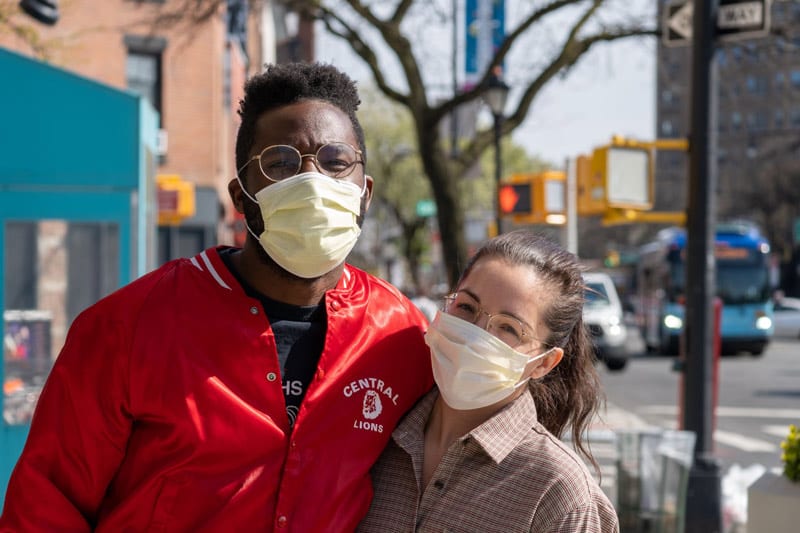These are unprecedented times. It is not unusual to have anxious feelings about the COVID-19 pandemic. Perhaps you have experienced waves of panic, worry, or stress. It is understandable to experience such emotions. They are normal human responses to perceived or actual threats.
In the last year, we have faced new realities such as home-schooling, working from home, limited in-person meetings, and threats of loss of livelihoods. On top of that, we’re also dealing with new social anxieties around getting back to ‘normal’ life. We have to put in extra effort to manage our emotions and mental wellness. Here are tips to help you do that.
Focus on the things you can control
Consider making a list of what you can control and what you cannot control. It is an excellent way to counter anticipatory anxiety.
Although vaccines are available, there are still many unknowns. New strains of the virus are emerging, and we don’t know whether there will be other devastating waves. Uncertainty makes us feel like we are not in control of our lives, triggering anxiety. By making a list of can/cannot control, we can refocus and rebalance the perceived hold we have on our lives.
Try and keep things in perspective
While going through this unsettling and distressing time, we need to remind ourselves everyone reacts to a crisis differently. Try to keep things in perspective. It will help you think clearly and wisely to address issues concerning your health, safety, and daily living. These steps will help you to keep things in perspective:
- Consider what is best for everyone – not just you.
- Follow the recommended guidelines even if you think it’s too much.
- Take care of your physical and mental health.
- Include helping others in your COVID-19 coping plan.
Create new routines and practice healthy behaviors
Adopting new routines can help you to build a new mindset and a new lust for life. It may be hard to think of yourself in a relaxed state of mind amidst all the changes, but our minds enjoy the predictability of routine.
Include positive or healthy habits in your new routines. Remember, there is a close relationship between your activities, thoughts, moods, and mindset. If you want to change your frame of mind, change your routines and activities.
Eat well
When we are under stress, our bodies produce a hormone called cortisol. Cortisol makes us crave foods high in carbs and sugars and makes the brain more active. But it also suppresses other “non-essential” physiological functions.
When we are anxious, munching on high-sugar or high-carb foods may feel nice. It may feel like we are getting what we need, but that is not what our minds and bodies need. Junk food increases the risk of depression and anxiety. Instead, eat well-balanced meals. Good nutrition leads to better mental health and stress resilience. Good food can help you to manage anxiety.
Practice body respect and compassion
COVID-19 affects the body, especially the respiratory system. So, building up your body defenses and adhering to guidelines on physical protection will go a long way in keeping anxiety and restlessness at bay.
But you can take it a notch higher. Respect your body by avoiding excessive alcohol, tobacco, and substance use. It helps to reduce vulnerability. Also, build your defenses by taking deep breaths, exercising regularly, getting sufficient sleep, eating well-balanced meals, stretching, and meditating. If you’re staying at home, using an exercise bike or rolling out your yoga mat for 30 minutes a day will make a world of difference to your mental health.
Practice compassion. Help others (beyond your immediate family) to cope with the pandemic. Of course, don’t ignore public health guidelines or foolishly expose yourself to risks. Think of ways you can contribute to the well-being of others. That way, you minimize risks to yourself, your family, and your community.
Maintain a positive attitude
Maintaining a positive attitude can go a long way in helping us to cope during difficult times. It will help you survive the bombardment of negative news and focus on what you need to make it through the crisis.
But it is nearly impossible to do it alone. A community to turn to and people to lean on is essential. It could be family or friends. Also, get a trustworthy source of fact-based information such as the Centers for Disease Control. It will help you sift through the constant barrage of unverified information.
These five practices will help you keep a positive attitude:
- Gratitude: Be aware and thankful for what you have.
- Faith practices such as prayer or reading reassuring scripture.
- Adopting new and healthy routines.
- Helping others. Remember, it is not all about you.
- Appreciating nature: Frequently stop to smell the flowers or listen to the birds. It really helps.
Stay focused on the big picture
The Stanford marshmallow experiment can help us understand what to focus on as we navigate through the crisis. Right now, we are experiencing a lot of change, uncertainty, and loss of control. But your actions contribute to a positive outcome.
As you make changes in your life and grapple with uncertainty, staying focused on the big picture will help you manage your emotions. Although it is uncomfortable now, it is a positive experience that will bring positive outcomes.
You will get your marshmallow later; it will be bigger and tastier. Keep your eyes glued on that.
Final thoughts
The pandemic has changed the lives and livelihoods of millions across the globe. During these uncertain times, it is normal to experience fear and anxiety. By working hard to practice these tips, you can take care of your mental wellness. You will think more clearly and solve issues related to your health, safety, and daily living. We are here to help. Don’t hesitate to get in touch.
If you or someone you know experiences mental health issues, it is important to seek help from a qualified professional. Our Resource Specialist can help you find expert mental health resources to recover in your community. Contact us now for more information on this free service to our users.
Photo by Julian Wan on Unsplash
The opinions and views expressed in any guest blog post do not necessarily reflect those of www.rtor.org or its sponsor, Laurel House, Inc. The author and www.rtor.org have no affiliations with any products or services mentioned in the article or linked to therein. Guest Authors may have affiliations to products mentioned or linked to in their author bios.
Recommended for You
- Why a Mental Health Retreat Can Transform Your Recovery Journey - December 11, 2025
- Laughter as Therapy: How Humor Supports Emotional Recovery - December 8, 2025
- When Teenage Stomach Pain Signals Anxiety: A Pediatric GI Doctor Explains - December 4, 2025






Great article. Thank you for reminding us of those things which we know we should do but neglect. We tend to dump such knowledge somewhere in the dim parts of our minds and allow ourselves to get stuck in routines which don’t benefit our mental health.